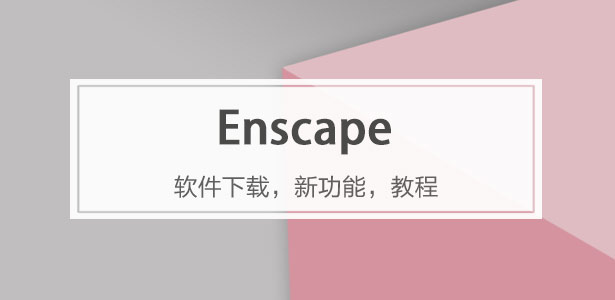
下載app免費領取會員




設計單位? 朱小地工作室+北京市建筑設計研究院股份有限公司
項目地址? 甘肅天水
建成時間? 2024年
建筑面積? 16154平方米
本文文字由設計單位提供。
麥積山游客中心以紅砂巖外表、循環往復的形態、光影變幻的空間和翔實的展示,構建起連接過去與未來的橋梁。The Maiji Mountain Visitor Center has built a bridge connecting the past and the future with the appearance of red sandstone, a circular pattern, a space of changing light and shadow, and rich and detailed displays.
麥積山群山環抱,一峰獨秀。斷崖上的石窟自前秦以來歷經開鑿,述說著施主的篤信與工匠的虔誠,遺留下的是佛教雕塑藝術精湛的曠世杰作。登上石窟崖壁上的棧道,遠眺群山,層層起伏形成的巨大的環形構造。在視線可及之處,還有幾個類似于麥積山的山體結構,麥積山只是這種結構中最大的一個。雖然,群山橫亙在大地之上,安然且穩重,但內在的能量聚集,形成一坡接一坡、一環套一環的較量,最終在節點之處形成了斷崖峭壁。
The Maiji Mountain, surrounded by mountains, stands out as a unique peak. The history of cave excavation since the Former Qin Dynasty on the cliff tells the story of the benefactor's faith and the craftsman's piety, leaving behind a masterpiece of exquisite Buddhist sculpture art. Climbing onto the cliff roadway of Maiji Mountain Grottoes, one can overlook the surrounding mountains, which forms a huge circumambulatory structure with numerous undulating peaks. Within sight, there are several mountain structures similar to Maiji Mountain, and Maiji Mountain is just the largest of these. The mountains stretch across the earth, calm and steady and form a series of rivalries, one slope after another and one ring after another, ultimately forming steep cliffs at the nodes.

麥積山石窟及周邊歷史遺跡是中原地區與西部地區長期交融的歷史見證。在此過程中,傳入的佛教與中原文化發生碰撞,互相作用,深刻影響了國人的精神生活。設計從佛教的影響切入,探討麥積山文化與藝術的意義。
The Maiji Mountain Grottoes and surrounding historical relics are historical witnesses of the long-term integration and convergence between the ancient Central Plains region and the ancient western region. In this process, the introduced Buddhism collided and interacted with the original culture of the Central Plains, and had a profound impact on the spiritual life of countrymen. To explore the significance of Maiji Mountain culture and art, we must first consider the influence of Buddhism, and design begins from here.
環形結構是人類意識覺醒后常用于儀式性和紀念性場所的原始空間形態,象征佛教的輪回觀念。一切有生命的東西如不尋求“解脫”,就永遠在“六道”中生死相續,無有止息。這些觀念在歷史長河中隨著文化交融發生變化,尤其在與漢民族原生文化交流融合的過程中,甚至在現代化過程中,已超越佛教本義,獲得當代解讀,而這,將預示著可持續發展的現實主義力量并作用于我們的生活體驗。
Circumambulatory structures are the most common and primitive form of space used for ceremonial and commemorative purposes after the awakening of human consciousness, corresponding to the Buddhist concept of reincarnation. All living things, if they do not seek 'liberation', will forever be in the cycle of life and death in the 'Six Paths', with no end. Of course, these concepts and annotations have undergone changes through cultural integration in the long river of history, especially in the process of communication and integration with the native culture of the Han ethnic group, and even in the process of modernization. They have surpassed the original meaning of Buddhism and have a more contemporary interpretation, which will foreshadow the realistic power of sustainable development and affect our life experience.
▲ 項目視頻? ?存在建筑Arch-Exist、吳燕明工作室
環形空間是建筑體驗的基本感受。設計同時將周邊自然環境的山勢起伏融于整個造型之中,促使人文情懷和環境力量疊加形成具有當代精神的能量場,作為具有環境力量的公共空間參與者,將這種態勢漫延到整個場地設計中。
The annular space is the fundamental feeling of the architectural experience. Meanwhile, the undulating mountain terrain of the surrounding natural environment is integrated into the overall design, enabling the humanistic sentiment and the power of the environment to overlap and form an energy field with contemporary spirit. It acts as a participant in the public space with environmental power, and extends this momentum throughout the entire site design.




設計將環形結構分解為六個梯形體量,相互穿插排列。體型交界處出現的“縫隙”,在外部成為造型的節點,在內部則形成了室外光線的開口。光線照進建筑,引導觀眾從一個空間走向下一個空間。游客中心的各項展示功能,正是在這樣的空間編排下逐步展開。
The circumambulatory structure is divided into six volumes, all of which are in trapezoidal shapes and interpenetrate each other. "Gaps" appear at the junctions of the volumes. From the outside, these can be regarded as the nodes of the shape, while inside, they form openings for outdoor light. The light shines into the building with a mysterious power and serves as a summons that guides the audience from one space to the next. The various exhibition functions of the visitor center unfold continuously under such spatial arrangements.



建筑的主入口面向西側道路,在兩個體量相撞下,形成拱起的灰空間。從這里可以直接看到環形結構中的庭院,頂部的金屬板彩繪吊頂展示了麥積山石窟的壁畫。色彩既鮮艷又古樸,撲面而來的文化氣息令人陶醉。
The interior of the building is unfolded under such special light guidance. The main entrance of the building faces the west side road, and under the collision of two volumes, a gray space is formed. Here, you can directly see the courtyard in the circumambulatory structure, with the mural content from the Maiji Mountain Grottoes presented by a metal plate painted ceiling at the top. The colors are both bright and quaint, giving people a strong cultural atmosphere.


進入室內,游客順時針方向沿緩坡前行,首先進入的是接待空間,然后依次是數字麥積山前廳、5D數字影廳、演繹中心前廳、展覽休閑區、最終到達文創中心,共計六個主題空間,同時該空間也是出發前廳的上空,至此完成動線的閉環。
From here, you enter the interior of the center and walk clockwise along the gentle slope. First, there is the reception space, followed by the Digital Maiji Mountain front hall, 5D digital cinema, performance theater front hall, exhibition and leisure area, and finally the cultural and creative center, totaling six themed spaces. At the same time, this space is also above the departure front hall, completing the closed-loop of the circulation.

這六個空間都相對封閉、巨大、無柱。空間之間以六個梯形筒體分隔,其中四個筒體提供結構支撐和抗震作用,每個筒體內布置了各種服務空間。六個可以自由布局的空間及其色彩靈感源于河西走廊東段中原文化對佛教文化的兼容并蓄。
The biggest feature of interior is that it consists of six relatively enclosed and huge column free spaces separated by six trapezoidal cores, four of which serve as structural support and seismic resistance, with various function spaces arranged in each core. The six freely arranged spaces and colors are inspired by the harmonious integration of Central Plains culture in the eastern Hexi Corridor with Buddhist culture.




環形沒有棱角和缺口,是完美的形狀,具有強大的包容性,既沒有明確的方向性,也沒有邊界限制,能容納各種事物。就像佛教以寬廣胸懷接納眾生,建筑的環形也象征對不同文化和背景游客的包容,提供一個和諧共處的空間。
There are no obvious edges or corners in the ring-shape, it is a perfect shape with strong inclusiveness, no clear directionality or boundary limitations, and can accommodate and accept various things. Just as Buddhism accepts sentient beings with a broad mind, the shape of the building also symbolizes inclusion for tourists from different cultures and backgrounds, providing a space for harmonious coexistence.


環形流暢的線條給人柔和、舒緩的感覺,讓內心平靜,仿佛置身于喧囂塵世之外,營造出與佛教修行所追求的寧靜氛圍相契合的環境,讓游客進入服務中心時感受到內心的安寧,為游客交流互動創造了良好條件,極大提升了游覽體驗,成為兼具文化底蘊與現代功能的標志性建筑。
The fluent toroidal streamline gives a soft and soothing feeling, which can make people feel calm inside, as if they are outside the hustle and bustle of the world, creating an environment that is in line with the peaceful atmosphere pursued by Buddhist practice, allowing tourists to feel inner peace when entering it. It has created favorable conditions for communication and interaction among tourists, greatly enhancing their travel experience and becoming a landmark building that combines cultural deposits and modern functions.


設計圖紙 ▽











完整項目信息
時間:2016年—2024年
面積:16154平方米
類型:文化建筑
狀態:已建成
地點:甘肅天水
業主:天水市麥積山文化旅游發展有限公司
設計單位:朱小地工作室、北京市建筑設計研究院股份有限公司
主持建筑師:朱小地
設計團隊:
建筑:汪大煒、樊華、張仔建、王健、李翔、崔曉勇、張政、姜薇、李祎瑋、宋媛媛、劉坤、王昊楠、范文娟、劉雯靜、程亞楠
結構:楊懿、蓋克雨、唐紹雪、耿青、宋春陽、朱忠義(設計指導)
設備:孫亮、李潔、梁鵬、趙國成、劉潔琮、時汗林、白鵬飛
電氣:梁巍、王緒、高揚、劉朔辰、王靈麗
室內設計:朱小地工作室、吳燕明工作室
景觀設計:北京市建筑設計研究院股份有限公司、綠盟(北京)國際工程設計有限公司
燈光設計:北京清華同衡規劃設計研究院有限公司 吳哲、唐莉
攝影:存在建筑Arch-Exist、王祥東、瀚墨視覺
視頻:存在建筑Arch-Exist、吳燕明工作室
視頻剪輯:張哲鵬
版權聲明:本文由朱小地工作室、北京市建筑設計研究院股份有限公司授權發布。歡迎轉發,禁止以有方編輯版本轉載。
投稿郵箱:[email protected]
本文版權歸腿腿教學網及原創作者所有,未經授權,謝絕轉載。

下一篇:沒有了






推薦專題
- BIM建筑|麥積山游客服務中心 / 朱小地工作室+北京建院
- BIM建筑|時境建筑新作:圣農博物館,再造山景
- BIM建筑|如恩新作:法國馬賽Gros Bao餐廳
- BIM建筑|SOPA+北京建院新作:中關村東升科技園三期(東畔科創中心)
- 建筑賞析|在校園的街道邂逅,衢州第六實驗學校
- BIM建筑|青山周平B.L.U.E.在建方案:廣州阿那亞理想國酒店
- BIM建筑|用“減法”做改造,法國皮埃爾與科萊特·蘇拉熱小學 / NAS Architecture + GTA
- 建筑賞析|480㎡黑白之境,極簡之美自然流淌
- BIM建筑|goa大象設計新作:杭州湘湖自由莊園,在30米高差間順勢生長
- BIM建筑|MASONPRINCE深業上城 / TOMO東木筑造+TO ACC



































